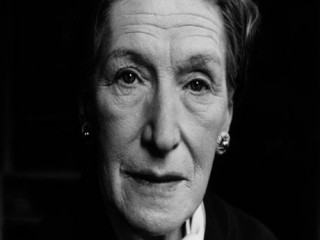
Elizabeth Bowen biography
Date of birth : 1899-06-07
Date of death : 1973-02-22
Birthplace : Dublin, Ireland
Nationality : British
Category : Famous Figures
Last modified : 2011-03-26
Credited as : Novelist, and short story writer,
The British writer Elizabeth Bowen dealt with the strivings of the individual will to fulfill itself in an alien and hostile world. She is considered a major British novelist of the 20th century.
Born in Dublin on June 7, 1899, Elizabeth Bowen lived in Ireland until the age of seven, when her family moved to England. Her education completed, she returned to Dublin in 1916 to work in a hospital for World War I veterans. Two years later she moved back to England and enrolled in the London County Council School of Art. In 1923 she married Alan Charles Cameron and published her first collection of short stories.
In 1925 Bowen and her husband moved to Oxford, where she became friends with many literary intellectuals, among them Isaiah Berlin and Lord David Cecil. There she wrote her first four novels: The Hotel (1927), The Last September (1929), Friends and Relations (1931), and To the North (1932). The first two concern the dawning of romantic love in the young, innocent heroines, who eventually become aware of its futility, while the last two concern the destructiveness of illicit love.
In 1935 Bowen and her husband returned to London, where her friends included Cyril Connolly, Virginia Woolf, and many of the Bloomsbury group. In that same year she published her fifth novel, The House in Paris. Again the theme is the destructiveness of romantic excess. It depicts an affair which results in pregnancy, the suicide of the lover, and the heroine's rejection of her child, though in the end she begins to reconcile herself to the reality of her situation. In 1938 Bowen published her best-known and perhaps finest novel, The Death of the Heart, about an idealistic young girl whose demands for honesty and openness are met with hostility by her family.
During World War II Bowen worked as an air raid warden and wrote for the Ministry of Information. In her seventh novel, The Heat of the Day (1949), the society which in earlier novels was seen as inimical to romantic illusions has disappeared entirely in the chaos of war, and the protagonists float in a sea of their own confusion. After the death of her husband in 1952, Bowen returned to Ireland. Except for numerous trips to the United States as a lecturer, she remained there and continued to write, publishing A World of Love in 1955. The story concerns three women who become aware that their romantic fantasies about a man dead for many years have kept them from living in the present.
In 1960 she returned to Oxford. She published The Little Girls in 1964 and Eva Trout, or Changing Scenes in 1968. The latter concerns a heroine whose romantic passion blinds her to the reality of other people, causing them pain and bringing about her questionably accidental death at the hands of her illegitimate son. In addition to her 10 novels, Bowen published several collections of short stories, numerous reviews, and many other critical pieces. She died in 1973.
















